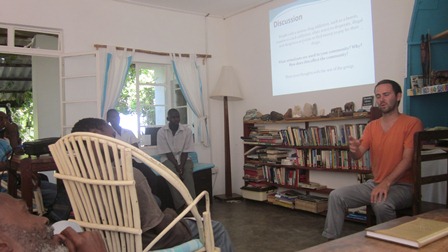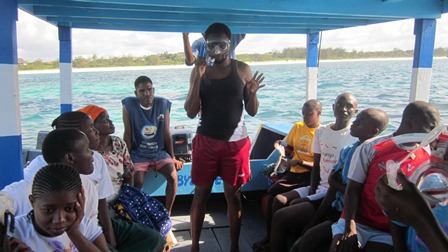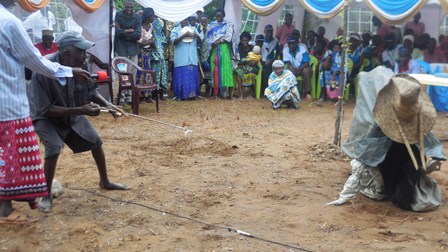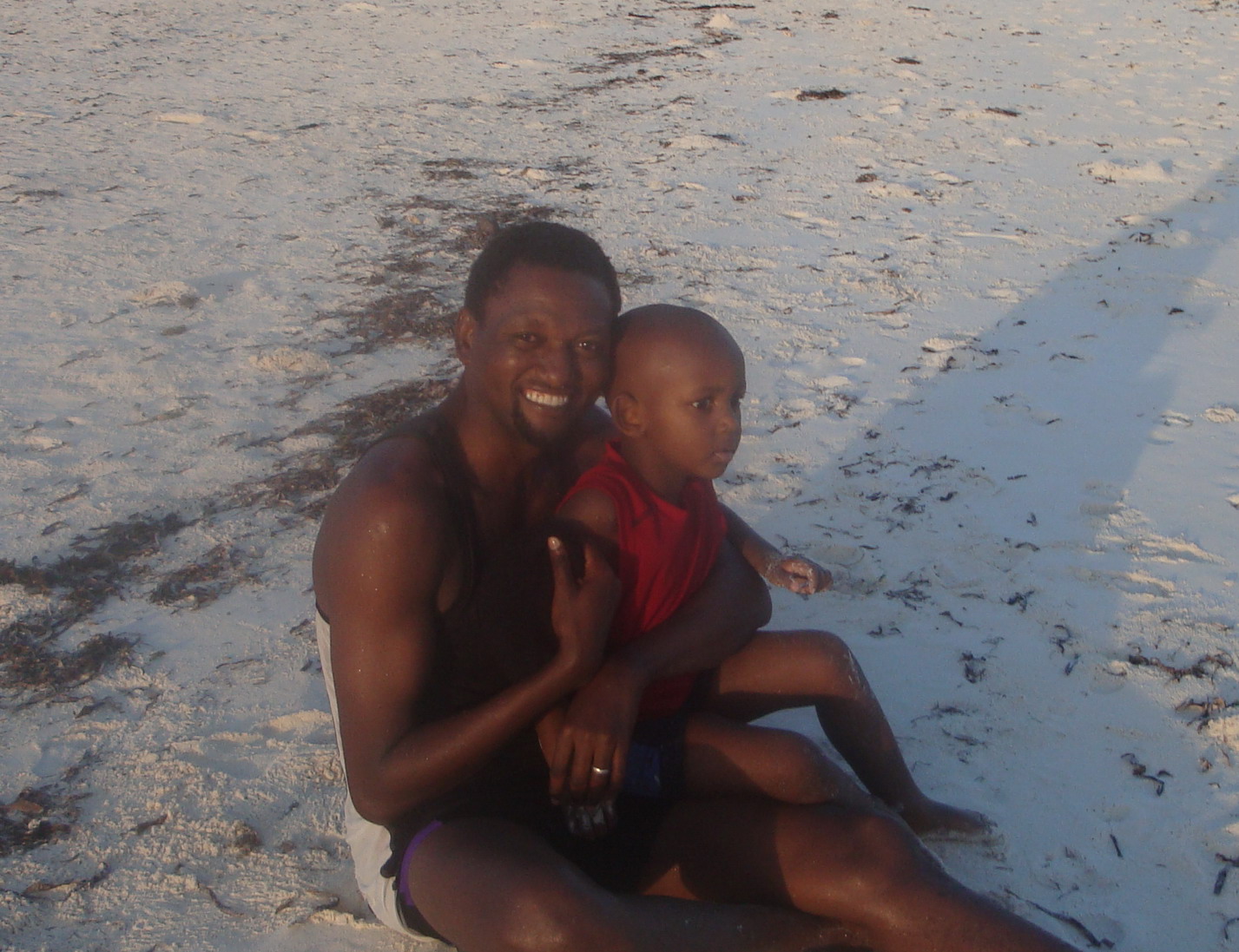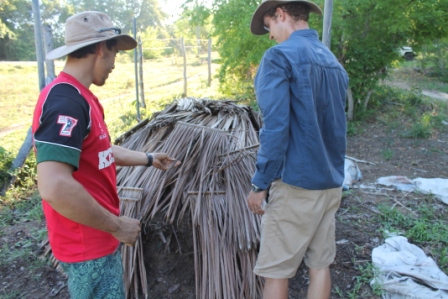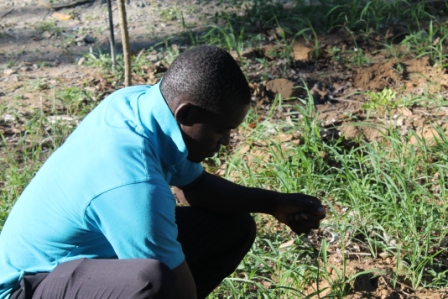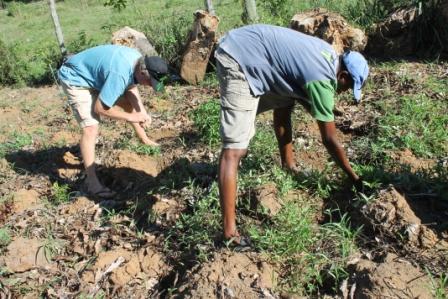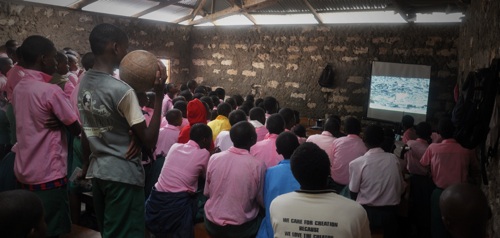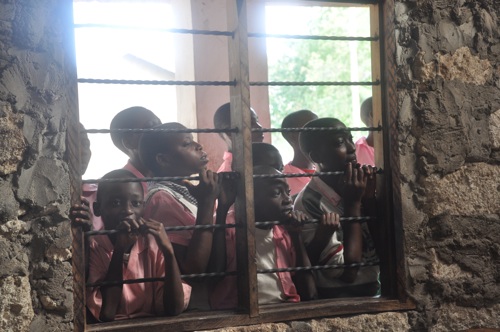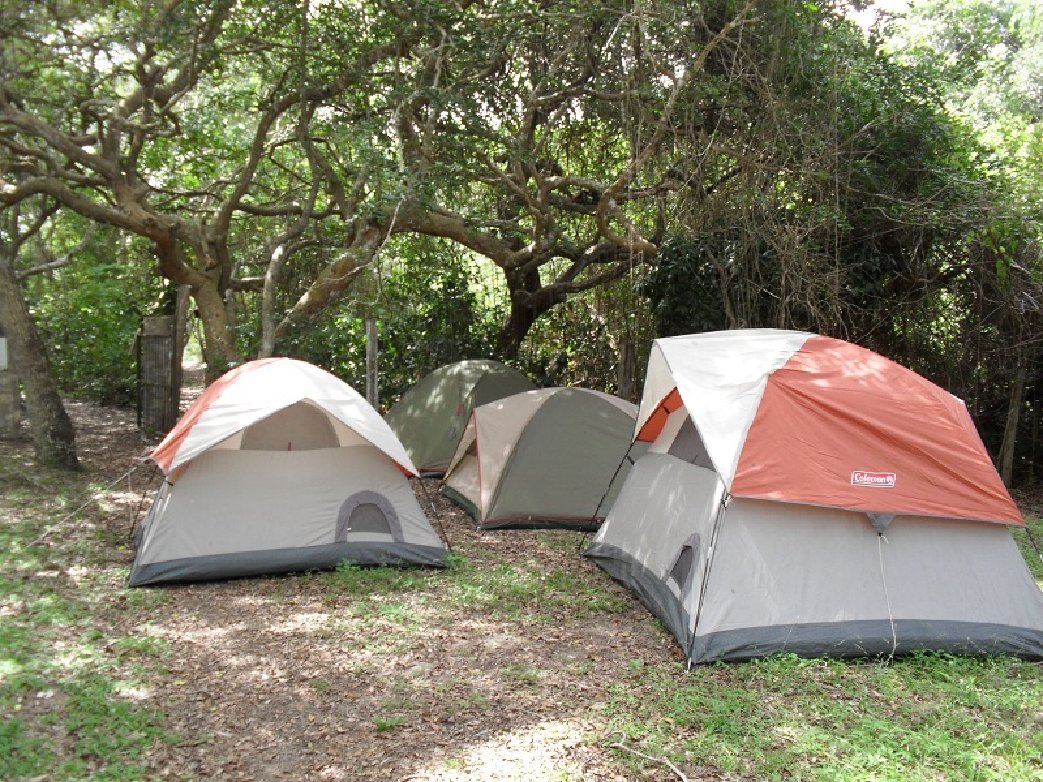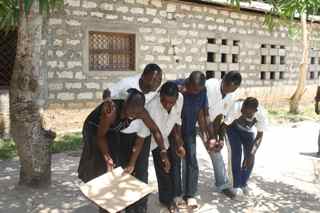The assets second camp was on from 28th of August and ended yesterday 30th August.It was a three day camp with alot of activities just like the first camp.The students who are first year beneficiaries got to learn about the environment and conservation.A total of 20 students and a teacher and a parent were in this camp. The first day the students were taken to the Mwamba nature trail where they learnt more about tree species and the general biodiversity of the mwanba little forest.

Thereafter there was an introduction part and this second camp was lucky to have two Assets university graduates who gave alot of encouragement to the students.

Later that day there was a talk on education and discipline by one of the Assets committee members(Mr Julius Mwawiswa).Mr Mwawiswa talked and quoted verses from the bible to give emphasis on his talk.Again the students were lucky to get a talk fromMr Rafael Magambo, the National director of A Rocha Kenya.Mr Rafael gave them sound advice on being morally upright and conservation.


It was time for games and two groups were formed,SIMBA(lion) and NYATI(buffalo).The first game was filling an empty bottle with water using hands from one member to the last.This was by giving water using the hands, then to the other member the same way until the last member who takes the water in the botlle. Nyati emerged the winners.It was then football where we had a great encounter and simba won 1-0.


In the evening the students watched a movie (finding nemo) before they went to bed.
Day two of the camp saw the students going for snorkelling after the morning glory and a powerpoint presentation from Benjo.Snorkelling was a great experience for the students whose majority had not been in water.Mr Robert Sluka and Benjamin cowburn who are the marine biologists at mwamba led the students on this wonderful part of marine life.Students were able to see corals and different types of fish.

After snorkelling Mr Stanley gave a powerpoint presentation on drugs and HIV Aids.We later went to the Watamu turtle watch(WTW) where the students learnt alot about turtles. We later went to games.After a tough match which ended on a 1-1 draw we went to penalties.Nine penalties were taken from both sides and Simba won 2-1.In the evening we had a session of bible study and a session of quiz in which simba won, before they went to bed
After a bird ringing session led by the director of conservation and reserch,A Rocha Kenya, Mr Collin Jackson, the last day was full of movements.The students were taken to the two eco-facilities where the bursaries come from.Mida creek was the first place they visited and were happy to learn the various species of mangroove.They were very amazed by the different species and their long biological names .They went on to climb the boardwalk. Few of them were very afraid of its shaky nature but got encouraged by their fellow students.


The second movement was visiting the Gede ruins tree platform. Here the students had a lot of fun on the platform after a tour of the ruins.

The students returned to mwamba for lunch.After lunch we had a recap of the camp and a short final quiz. The points were calculated and Simba became the overal winnere with 23.5 points and Nyati had 23 points.Prizes were awarded to the winning group.The losing group also got consolation prizes.The teacher and the parent who attended the camp were also awarded prizes. The camp ended with a prayer from one of the students and then they were shown a slideshow of all the photos taken during their stay.At 3:20 the students left mwamba.

